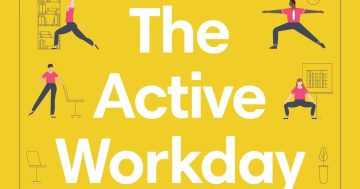Sarah Garone* says a new survey has found that people are happiest when they have a mix of effort and relaxation each day.
 Most of us struggle to find the balance of work, family responsibilities, and free time in our daily lives.
Most of us struggle to find the balance of work, family responsibilities, and free time in our daily lives.
And many of us often feel we’d be happier if we had more unscheduled downtime.
Maybe we find ourselves fantasising about a life spent on a beach somewhere, lazing the days away with piña coladas in hand.
But would lots more leisure time really leave us more fulfilled?
While needs vary among individuals, a new survey found that overall, people were happiest when they had a mix of effort and relaxation each day.
The sweet spot?
Four to five hours of downtime daily.
The survey also found that most people would rather have more free time than more money and wouldn’t give up one second for one cent.
The time of day spent on leisure affected people’s enjoyment of it too.
Getting home after 6 pm made people twice as likely to feel unhappy than arriving home by 5 pm.
And differences in preferred ways to spend extra time showed up by age group, gender, and the country in which survey respondents lived.
Not surprisingly, however, across the board, the least popular way to spend free time was cleaning.
Downtime for mental health
There’s more to downtime than just empty hours of the day.
Our bodies and brains need breaks.
Free time allows us the opportunity to socialise, exercise, or get some extra rest, all known mental health boosters.
And even if we feel bored by excess time, a little boredom has been shown to have major benefits on the brain, increasing creativity and helping us build neural connections.
Too much free time
Certainly, the benefits of having a few extra hours in the day are well established, but research shows that there is actually such a thing as having too much time on your hands.
Spending our days idle could detract from the sense of purpose we all need to keep us mentally healthy.
Too many open hours can also lead us to unwise decision-making.
A study conducted by the University of Cincinnati and Baylor University found that people who had increased “time affluence” (AKA an overabundance of spare time) often ended up making impulsive, materialistic purchases, resulting in them feeling less happy.
The takeaway: if you have a few extra hours, don’t burn them up at the mall.
Try volunteering, calling a friend, or reading a book.
Getting the most of your downtime
We all want to get the most out of our precious free time, so it can be easy to fall into the habit of pencilling in activities for every last minute.
But experts say the key to enjoying downtime is to not overschedule it.
Taking the focus off productivity allows for more enjoyment of leisure activities.
Let that free time be free!
Additionally, many mental health pros recommend not using all of your extra time on screens.
Too many hours in the glow of your laptop, TV, or phone causes the “processing” areas of the brain to atrophy.
Strive for a balance of screen-based leisure activities with other choices like an outdoor walk, a relaxing bath, or playing with your kids or pets.
Finally, if you feel you’re not getting enough breaks in your day, try taking an inventory.
Over a few days or a week, track your free time and how you spend it.
You may find you have more than you realise, or you might be able to spot ways to cut out unfulfilling tasks in favour of more worthwhile pursuits.
* Sarah Garone is a nutritionist, freelance health writer and food blogger. She tweets at @LoveLetter2Food and her website is alovelettertofood.com.
This article first appeared at www.brit.co.











